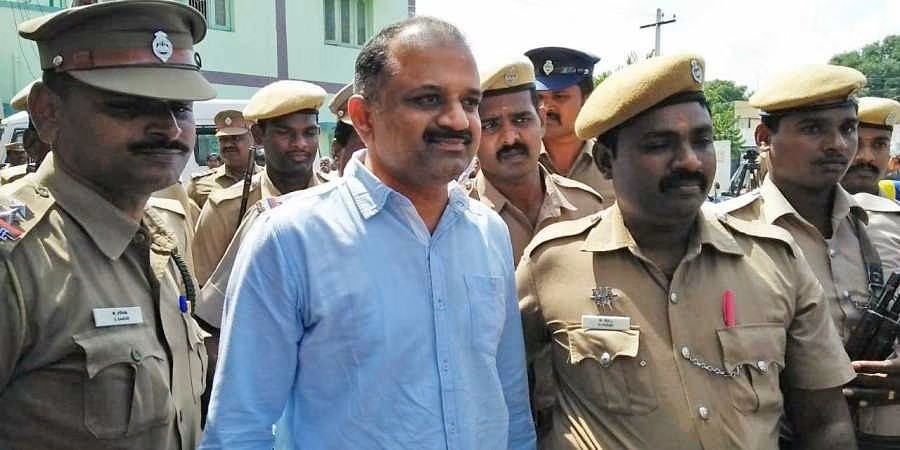The bench noted that there is no dispute that A G Perarivalan has undergone 32 years of imprisonment and was released on parole twice but there were no complaints.

New Delhi: Arrested at the age of 19, A G Perarivalan, convicted for Rajiv Gandhi’s assassination, was granted bail by the Supreme Court Wednesday after initial concerns that the Governor is yet to decide on his plea seeking release from prison.
The bench noted that there is no dispute that Perarivalan has undergone 32 years of imprisonment and was released on parole twice but there were no complaints.
The bench, chaired by L Nageswara Rao said, “Since he has already undergone sentence for more than 30 years, we are of the considered view that he is entitled to bail in spite of the vehement opposition by Additional Solicitor General K M Nataraj.”
Perarivalan is one of the seven convicts currently undergoing life sentences in the Rajiv Gandhi assassination case. Wednesday’s order was passed on a leave petition passed by Perarivalan in 2016.
Also Read: Indian Army jawan, who had come home on leave, goes missing in Kashmir
While granting bail, the Supreme Court bench noted that there “are sufficient materials produced to show the acquisition of educational qualifications and skillset by him during his incarceration and his ill-health”.
In 1991, Perarivalan was arrested with two 9V batteries which were used to trigger the belt bomb that killed Rajiv Gandhi on the night of May 21, 1991 in Tamil Nadu. Investigators had later found the role of a woman identified as Dhanu, who, along with 14 others, were killed in the blast.
The Centre had opposed Perarivalan’s bail and had said the President is the competent authority. It had added, “In case of offences to which the executive power of the Union extends, it is the Centre which is entitled to decide on plea for release.” As an argument, the Centre had said that Perarivalan had already got his death sentence reduced to life term since there was a delay in the decision on his mercy plea.
The Supreme Court then added, “In view of the stand taken by the Union of India that the state government does not have the power to entertain the application especially after the sentence of death imposed on the has been reduced to life, the matter will have to be decided finally…sufficient material has been produced by the applicant to prove his conduct during the long incarceration, acquisition of degrees and ill health.”
